QuestionQUESTION: Hi
I got a lovely Burmese boy kitten from a breeder, which at the time of my kitten growing up had another 17(!) kittens in the same household. In addition there were about 4 adult female cats. I went to visit the breeder whilst the kitten was approaching his 13 weeks before I could bring him home. I wasn't too keen on the fact that he grew up with so many other cats but at that point I had put down a deposit and, more importantly, fallen in love with my kitten. The breeder did tell me that the kittens were looked after by not only their own mother but sometimes other feline mothers as well. Long after I picked my kitten up I also found out that the breeder had let the mother of my kitten go as she was getting bullied (unless she had a litter) by the other feline female adult cats. My question is whether my kitten's adult behaviour is influenced by the fact that he grew up in a busy multi cat household? My cat grew up to be extremely hyper active. He lived for the outside and would get very upset and stressed if he couldn't go outside to play. I wouldn't say he was a typical Burmese (of what I have read about the breed)...He was affectionate but not much more so than my moggie. I guess I'm curious to know whether male Burmese are, in general very hyperactive and /or how much of their future development and characteristics are influenced by their first early months. Of what I have read about the breed they are suppose to be super affectionate and follow their people. He was friendly to everyone but he really just lived for the outside. I'm wondering if he may not have been socialised properly due to the multicat household he grew up in or if it was just his personality? I'm wondering as im thinking of getting another Burmese boy but not sure if the breed suits me and the way we live. I really like the breed and my cat was adorable but he was very hyper and I just could not let him be an indoor cat only as that would make him very sad. I'm looking for an affectionate ("in your face cat") and thought Burmese was the perfect breed for me.
ANSWER: Helen,
It is difficult to take outside cats or cats that have allowed outside and make them into an indoors only cat. However, with persistence and patience, it can be done.
Yes, he does not seem to exhibit typical Burmese behavior. Also, I would bet with the number of cats to take care of the breeder probably did not have time to properly socialize the kitty.
In time, especially after your boy is neutered, he should calm down, and become a better pet.
Best regards... Norm.
---------- FOLLOW-UP ----------
QUESTION: Hi
Thanks for that. I was thinking perhaps you could shed a bit more light about the (male) burmese, as a breed and how a multicat household can influence the development of a kitten. I have heard from other experts that seeking companionship with other feline adults, is normally a good thing and part of the socialising and it's as much about cat to cat as it is cat to human! Im therefore a bit confused whether a multi cat household is a good or a bad influence on kittens development. Thanks
AnswerHelen,
In a multi-cat household, if they have too many cats & kittens, the kittens are usually not getting the individual attention they need to get socialized. Also, it is hard to know where they were in the pecking order amongst all these cats.
Given that and the individual differences amongst kittens in the same litter, it is not hard to imagine that the normal Burmese breed traits could get overridden by circumstances in the household.
That being said, multi-cat households are fine if the number of cats is reasonable (i.e. no colonies larger than 3 or 4 cats).
We isolate our litters until they are about 13 weeks of age. During this time, they see only people. Also, they have had all their shots and their immune systems are just about developed. In addition, they and learn to play with cat teases of various types. Now, the litter is put into a colony of adults to learn how to get on with other cats. We do not sell our kittens until they are about 16 weeks of age.
So, although the experts you listened to are correct, as far as they have gone, the number of cats can be a problem.
In households with too many cats, contagious medical issues are problematic because all the cats must be treated (which can be very expensive). Also, the stress of very high numbers of cats does impact the immune systems of all the cats which creates more medical issues. I believe you get the drift.
I am sorry I was so long getting back to you and I hope this helps explain what may have happened to affect your cat.
Best regards... Norm.

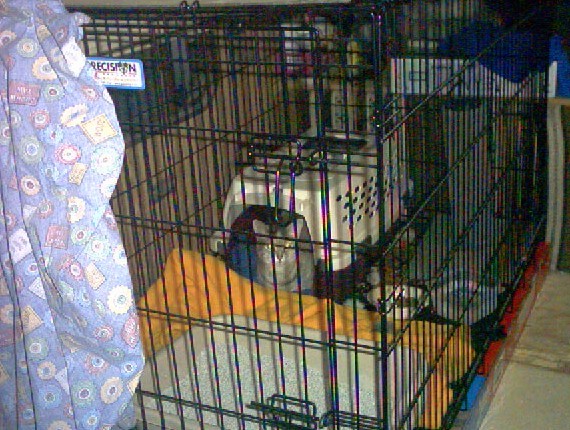 vacation house and taking cat
Questionour permanent home is on a 3 acre semi wooded p
vacation house and taking cat
Questionour permanent home is on a 3 acre semi wooded p
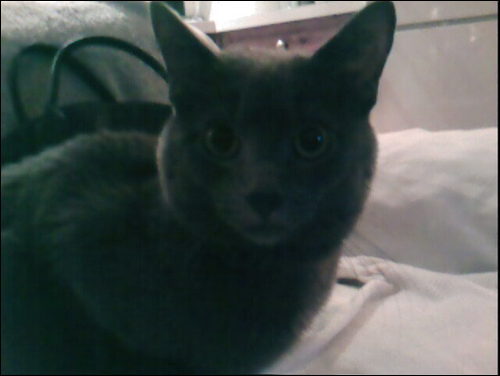 My cat pees on the carpet!
Question
My Cat Tigger
Hi I have a male cat he i
My cat pees on the carpet!
Question
My Cat Tigger
Hi I have a male cat he i
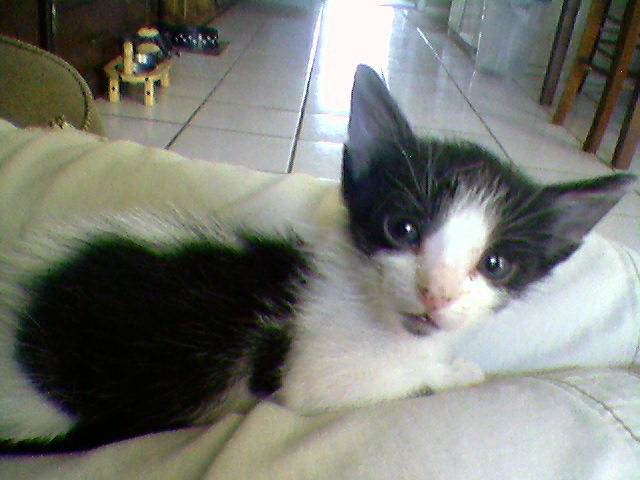 Orphan Kitten Care
Question
My new baby
Hello! Okay, Ill try to sho
Orphan Kitten Care
Question
My new baby
Hello! Okay, Ill try to sho
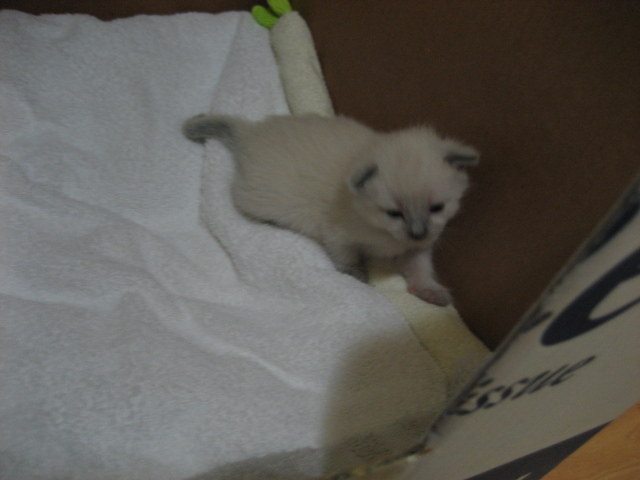 is my kitten blue or blue cream point?
Question
polar bear
hi Jessica, our mommy cat is a blac
is my kitten blue or blue cream point?
Question
polar bear
hi Jessica, our mommy cat is a blac
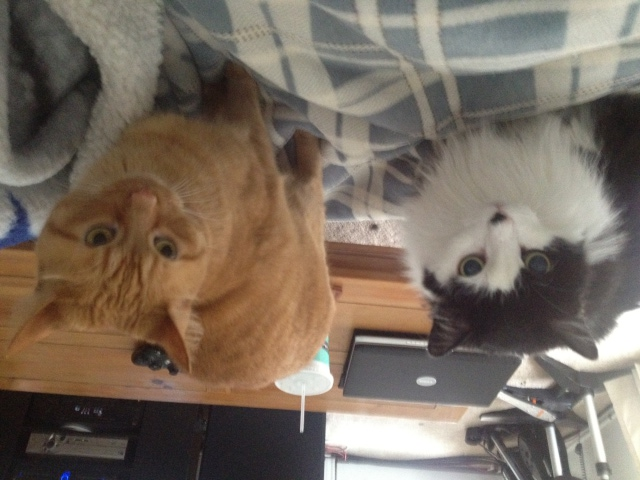 Cat peeing on floor after other cat died
Question
My babies
I have a 6 year old tabby (my
Cat peeing on floor after other cat died
Question
My babies
I have a 6 year old tabby (my